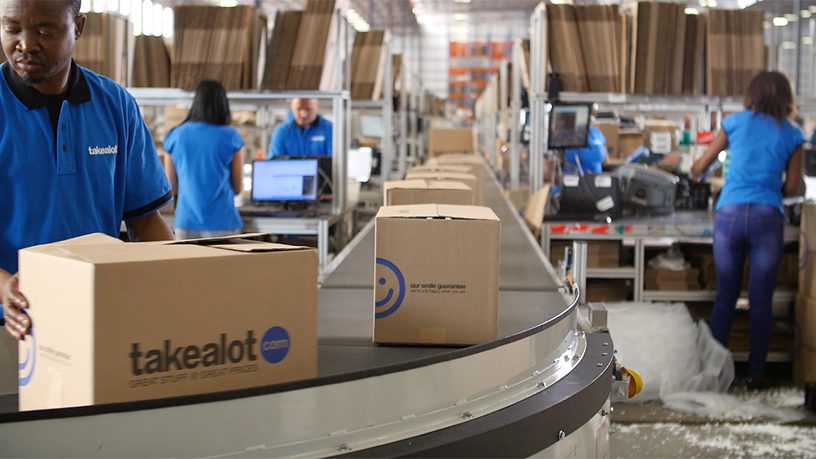Takealot Troubled By Aggressive Foreign Rivals Invading SA, Calls Foul Play

South Africa’s e-commerce leader, Takealot Group, presented a mixed bag in its recent financials for the year ended March 2024. While the group managed to reduce trading losses to USD 14 M, overall revenue dipped slightly by 2% year-on-year to USD 792 M. This slowdown coincides with a surge in competition, particularly from aggressive international players like Shein and Temu, who have been accused of exploiting loopholes to undercut local retailers.
“There was increased competition throughout the year as competitors continued to invest heavily in e-commerce capabilities,” Naspers, Takealot’s parent company, stated in its earnings report. “[Global competitors] have made strong inroads into a price-conscious South African market, and new entrants could further intensify competition.”
Takealot’s fashion arm, Superbalist, seems most vulnerable, with the company itself admitting, “Superbalist’s revenue growth has struggled because of the acceleration of international players offering cheap clothing products in South Africa.”
The recent arrival of Amazon in South Africa adds another layer of complexity. Though a newcomer, Amazon’s vast experience in e-commerce poses a significant threat to established players like Takealot.
However, there are bright spots. Mr D, Takealot’s food delivery platform, achieved a significant milestone by reporting its first-ever profit of USD 3 M, alongside a healthy 16% growth in GMV. Takealot.com, the group’s flagship online store, also witnessed a 13% increase in GMV and surpassed the 10,000 active marketplace seller mark. Additionally, Takealot managed to reduce its trading losses by USD 4 M compared to the previous year.
“Despite a challenging economic environment and increased competition,” Naspers highlighted, “Takealot.com’s trading losses were reduced year-on-year.”
Leveling the Playing Field
Previously, foreign players like Shein and Temu were able to exploit loopholes in South Africa’s import tax regime. These loopholes involved customs duties for imported parcels under ZAR 500.00 (~USD 28.00) being significantly lower (20% import duty, 0% VAT) compared to larger shipments.
Takealot and the National Clothing Retail Federation have accused these companies of splitting larger orders into smaller packages to qualify for the lower tax bracket. Additionally, some retailers reportedly undervalued small parcels worth more than ZAR 500.00 to qualify for a lower import duty and avoid VAT altogether.
These practices, local rivals argue, gave these offshore businesses an unfair advantage and hurt local clothing producers, who contribute to the South African economy and create local jobs.
To address this imbalance and create a fairer playing field, the South African Revenue Service (SARS) has implemented new import tax regulations. These regulations now subject all clothing imports to a 45% import duty and an additional 15% VAT, regardless of value. SARS is also working with courier companies to ensure the correct duties and VAT are applied.
South Africa’s online retail sector surged by 29% last year, reaching ZAR 71 B (USD 3.8 B), with e-tailers like Takealot and even online shopping arms of brick-and-mortar chains like Shoprite and Pick n Pay making their mark. A recent World Wide Worx study predicts the sector will hit the ZAR 100 B (USD 5 B) mark by 2026, capturing 10% of all national retail sales.
Looking ahead, the soon-to-be-implemented import tax regulations by SARS could alter the landscape. These regulations aim to create a fairer playing field by applying the same duties and taxes to all clothing imports, regardless of value.
“It is imperative that policy-makers craft regulations to level the playing field, ensuring all participants adhere to the same standards and practices and contribute fairly to the national economy,” Takealot emphasized.
Whether these regulations and Takealot’s ongoing efforts to improve profitability will be enough to counter the international giants’ growing influence remains to be seen. One thing is certain – the South African e-commerce landscape is becoming increasingly competitive. With growth metrics showing promise but revenue dipping slightly, Takealot will need to adapt and innovate to maintain its dominant position.